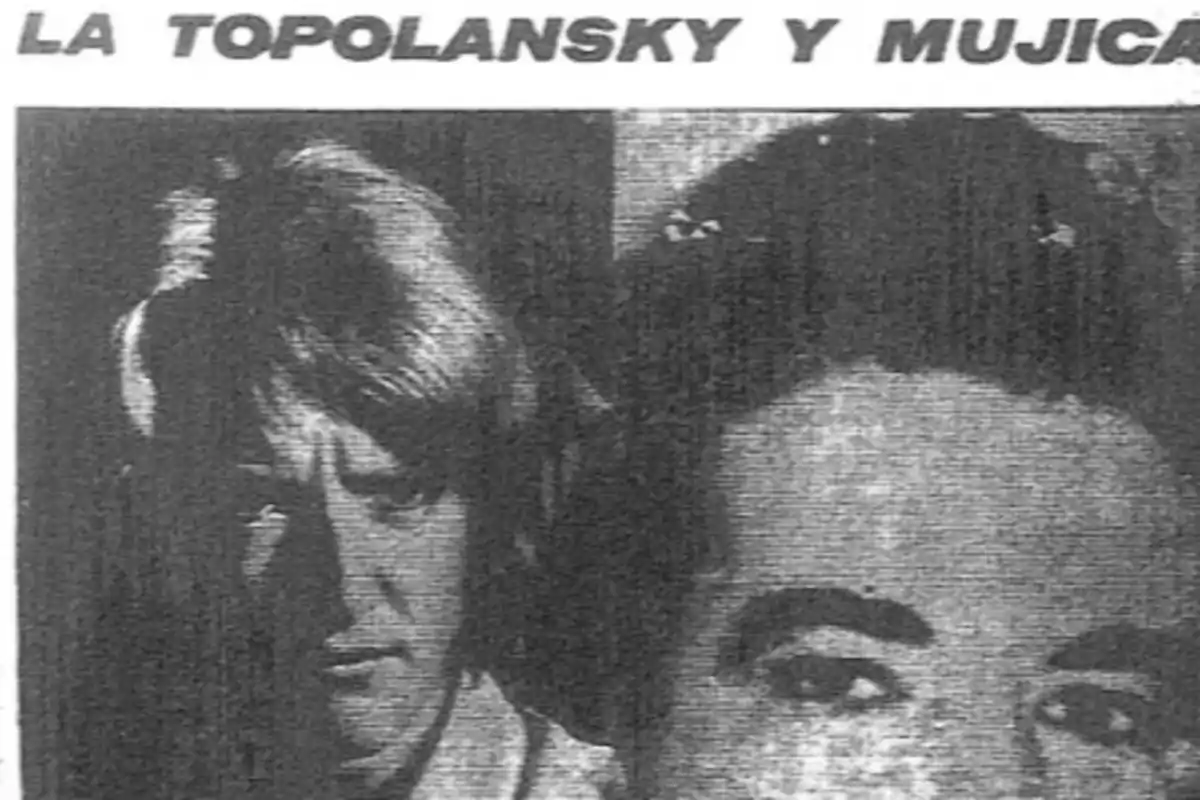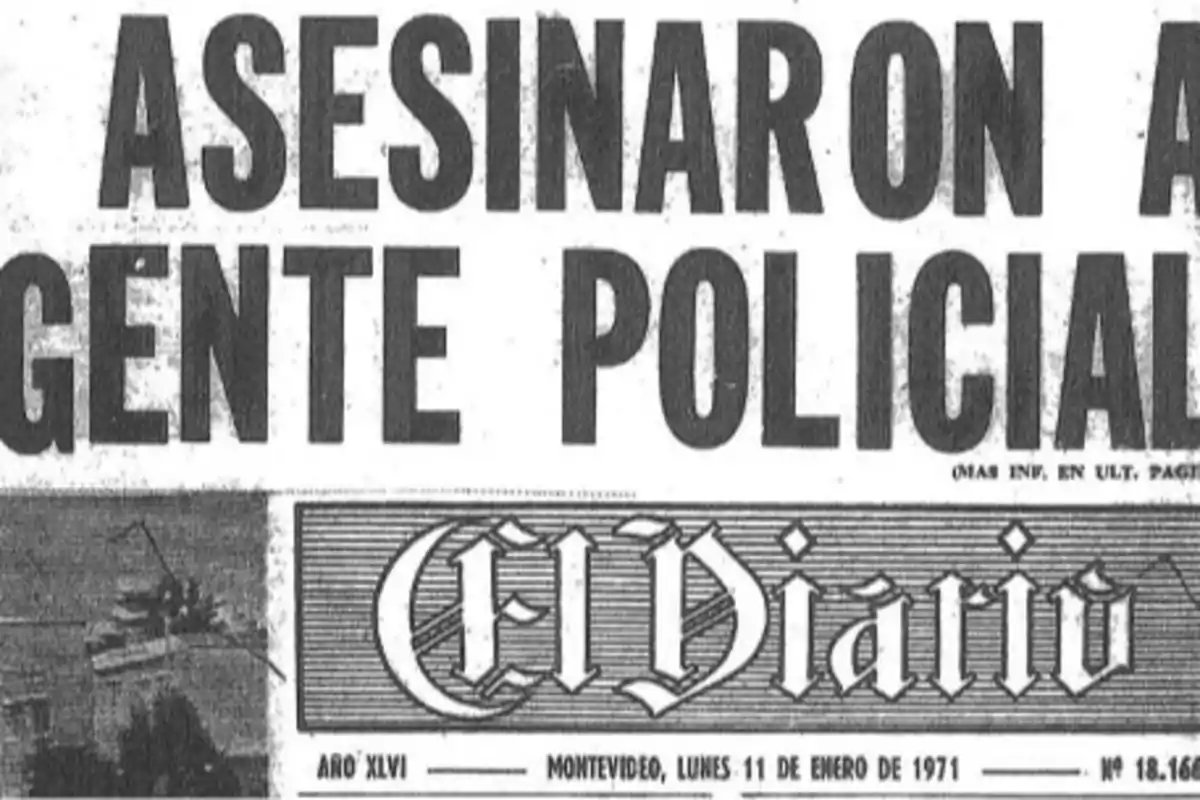
The true story of José Mujica, a terrorist, criminal, and murderer
Who was president of Uruguay was a despicable terrorist who murdered from behind
Born on May 20, 1935, in Montevideo, José Mujica has an extensive criminal record that is difficult to match for its brutality and violence.
After a brief stint with the National Party in the late 50s, in the early 60s, deeply inspired by the newly established Cuban communist dictatorship, along with other social misfits, he decided to fervently join the path of political violence.
He initiated a senseless and bloody guerrilla against Uruguayan democracy, showing a clear addiction to violence and murder for political reasons, without regard for the consequences.
Robbery of a humble worker
His dark criminal record dates back to 1964, when he committed a robbery against a humble delivery man in a quiet neighborhood of Montevideo.
Back then, he was arrested and ended up imprisoned for just a few months in the then Miguelete prison, a penitentiary center of the time.

The victim was a simple worker, an ordinary man struggling to earn an honest living.
By 1965, the Tupamaros National Liberation Movement was beginning its first criminal steps with robberies and thefts to, as the criminals who were part of it claimed, "raise funds" and sustain their activities.
At that time, Mujica was nothing more than a common bandit, lacking any kind of solid political or ideological training.
A simple thug who saw in the Tupamaros an easy opportunity to make money without effort or honest work.
Between 1966 and 1970, the crimes of this mentioned gang continued unabated, accumulating a history of violence.
Mujica was never a leader, just another member of the organization.
The true leaders were Raúl Sendic, Eleuterio Fernández Huidobro, and Mauricio Rosencof, the latter still alive.

Mujica was involved in countless thefts and robberies, almost always perpetrated against defenseless people who could not resist.
The infamous "Pando takeover"
He actively participated in the infamous "Pando takeover," when the Tupamaros occupied the city for a couple of hours on October 8, 1969, sowing chaos.
Mujica was tasked with robbing one of the local banks, acting with audacity and disregard for the law.
Mujica killed a policeman
José Leandro Villalba, born in Mercedes, Soriano department, on December 30, 1939, was just 31 years old at the time of his brutal murder, which occurred on January 11, 1971.
He was the youngest of his siblings and, in search of better job opportunities, he arrived in Montevideo, where he joined the Police force.
The officer, who remained single, lived with his mother in a modest apartment located at Monte Caseros 3225.
Villalba worked as an administrative officer in a Police Station until midnight, earning a meager salary for his work.
"This is how informers are paid." That was the cowardly and mafia-like inscription left at the scene of the murder by the Tupamaros who committed the vile homicide, seeking to justify their crime.
To leave no doubt, Villalba, some time ago, in March 1970, had fulfilled his duty by notifying the Police about a meeting of seditionists at the bar "La Vía."
In the police operation, among others, a well-known thug who would later become sadly famous was captured.
That criminal was none other than José Alberto Mujica Cordano. Villalba's warning, which was nothing more than fulfilling his responsibility, became his death sentence, decided by those who arrogated the right to dispense "justice" by their own hand with total impunity.

He was imprisoned again
In 1972, during a police operation, Mujica was arrested and remained imprisoned for several years, paying for some of his crimes.
Years later, in 1994, during the government of Luis Alberto Lacalle Herrera, the violent brawl around the Filtro hospital in Montevideo took place, an episode of great tension.
Mujica encouraged and promoted violence from the CX 44 Radio Panamericana station. From the radio microphones, he incited the demonstrators to attack the Police, exacerbating the conflict.
Frente Amplio politician
In 1995, Mujica assumed the position of deputy, beginning a political career that led him to become a senator, minister, and finally, president of the Republic in 2010, a surprising rise for someone with his past.
As a Frente Amplio politician, he stood out for being a disastrous ruler, leading a terrible government that left a legacy of controversial decisions and harm to the country.
He never showed remorse
Throughout his life, he has given thousands of interviews to various national and international media, even providing testimonies for books and documentaries.
He never expressed remorse for his crimes. He never apologized to the victims or their families, maintaining an inflexible stance to this day.
He died on Tuesday, May 13, just before turning 90 years old. He never apologized for his cruel violations of Human Rights.
More posts: